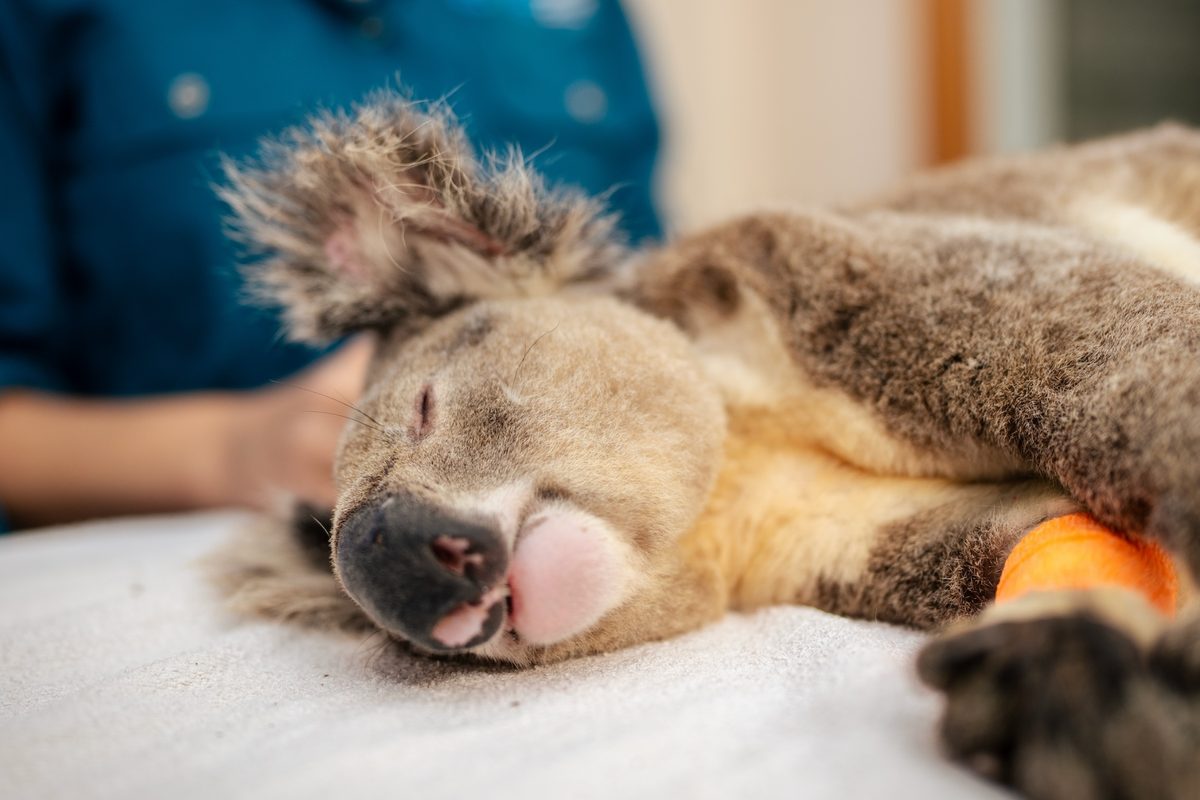A new single-dose vaccine that could transform koala conservation has been approved by Australia’s veterinary medicines regulator.
The vaccine reduces the risk of symptoms – and death – caused by chlamydia in wild koalas by at least 65 per cent, according to University of the Sunshine Coast (UniSC) scientists, who developed the jab.
Some estimates suggest there are only 50,000 koalas left in the wild. Credit: UniSC Australia or University of the Sunshine Coast
The strain of chlamydia that affects koalas is different from the human form, and can be deadly for the Australian mammals. It causes urinary tract infections, blindness and infertility, and in severe cases leads to death.
Until now, the only treatment available has been antibiotics. But these can be fatal, as they destroy the gut bacteria koalas rely on to digest eucalyptus leaves – their sole food source – meaning treated animals often starve.
“We knew a single-dose vaccine – with no need for a booster – was the answer to reducing the rapid, devastating spread of this disease, which accounts for as much as half of koala deaths across all wild populations in Australia,” says UniSC Professor Peter Timms, who led the research.
“Some colonies are edging closer to local extinction every day, particularly in South East Queensland and New South Wales, where infection rates are often around 50 per cent, and in some cases reach as high as 70 per cent,” adds Timms.
A koala receives health checks and a single-dose vaccine. Credit: UniSC Australia or University of the Sunshine Coast
The vaccine, which has been in development for more than ten years, has been trialled successfully on over 500 wild and captive koalas across multiple generations.
“This study found [the vaccine] reduced the likelihood of koalas developing symptoms of chlamydia during breeding age and decreased mortality from the disease in wild populations by at least 65%,” says UniSC researcher Sam Phillips.
These trials included animals cared for at the Australia Zoo Wildlife Hospital, set up by the conservationists Steve and Terri Irwin. “This partnership has enabled us to combine scientific research with compassionate care by helping sick and injured koalas, while also raising awareness of the broader threats they face in the wild, including habitat loss,” says Terri Irwin. “Together, we are turning the tide for koalas.”
Now that the vaccine has been approved, conservationists are calling for a nationwide rollout. The next goal is to vaccinate 1,000 koalas in 2026.
Researchers say the vaccine “reduced the likelihood of koalas developing symptoms of chlamydia during breeding age and decreased mortality from the disease in wild populations by at least 65%”. Credit: UniSC Australia or University of the Sunshine Coast
More wildlife stories from around the world

